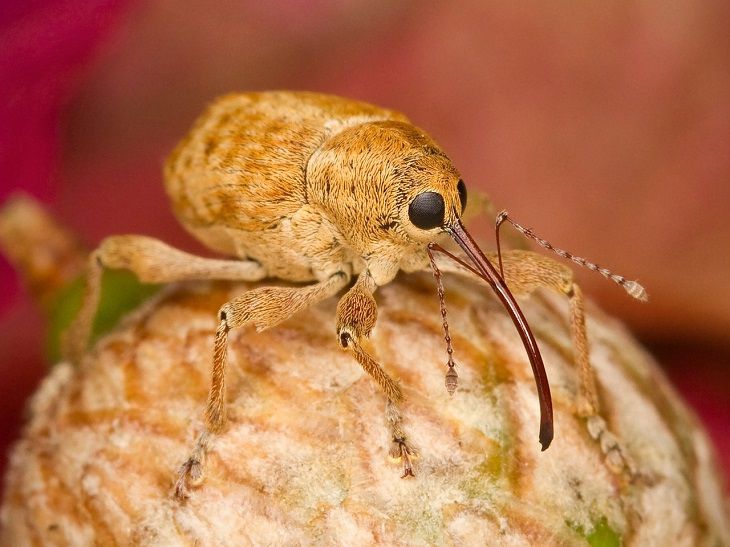Weevils are small beetles that can cause significant damage to your plants and crops.
These pests attack roots, stems and leaves, which can lead to plant death and crop loss.
The fight against weevils requires a comprehensive approach and knowledge of effective methods of their destruction.

Biological methods of weevil control
One of the most environmentally friendly ways to combat weevils is to use their natural enemies.
Natural predators such as predatory nematodes and ground beetles can significantly reduce weevil populations.
Predatory nematodes penetrate the body of weevils and destroy them from the inside, which makes this method very effective. Ground beetles hunt weevils and their larvae, which helps control their numbers.
The use of biological control methods also includes attracting beneficial birds to the garden.
Sparrows, tits and other insectivorous birds can help you get rid of weevils by eating them in large quantities.
To attract birds, you can install feeders and birdhouses, which will create favorable conditions for their stay in your garden.
Chemicals: Choosing the Right Insecticide
If biological methods do not give the desired result, you can resort to using chemical agents.
Insecticides are an effective way to control weevils, but their use requires caution. It is important to choose products that are safe for plants and the environment.
Modern insecticides are highly effective and can destroy weevils at all stages of their development.
Before using an insecticide, you must carefully read the instructions and follow the manufacturer's recommendations.
Remember to take safety precautions: use protective gloves and a mask to avoid chemicals getting on your skin and into your respiratory tract.
The insecticide should be applied in calm weather to avoid its spreading to other areas of the garden.
Traditional methods: natural and safe solutions
There are also folk methods of combating weevils, which can be used in combination with biological and chemical agents.
One of these methods is the use of infusions and decoctions of plants that have insecticidal properties.
For example, garlic infusion or wormwood decoction can help get rid of weevils. To prepare garlic infusion, you need to crush several cloves of garlic and pour hot water over them.
After infusing for several hours, the infusion is ready for use.
Another folk method is the use of wood ash. Wood ash repels weevils and helps prevent their reproduction.
Sprinkle ash around the plants and lightly cover the soil to protect the roots from damage.
Preventive measures: how to prevent weevils
Prevention is key in the fight against weevils. Regular garden maintenance, proper crop rotation, and adherence to agricultural standards will help prevent the appearance of these pests.
One of the effective methods of prevention is crop rotation. Alternating crops helps reduce the likelihood of weevils appearing, as different plants attract different pests.
It is also important to regularly inspect the plants and promptly remove damaged parts. This will help prevent the spread of weevils and other pests.
Pay attention to the condition of the soil: loosening and mulching will help improve its structure and reduce the likelihood of pests appearing.
